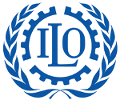Environmental Compliance Plan
The Environmental Compliance Plan (ECP) was implemented across the Carnival Corporation in 2017, the measures of which go far beyond fulfilling the internationally applicable legal requirements. They ensure consistent monitoring of and adherence with environmental indicators on all AIDA ships. Adherence with the standards in the plan will be checked regularly by external auditors, which will also help to contain environmental risk factors. The ECP also contains a binding, extensive environmental training system for all land-based and ship-based employees.
Global HESS
The Carnival Corporation’s global HESS management system governs our management of processes with regard to the environment, health and safety both at sea and on land. In many areas, these HESS standards go beyond the regulations that apply on land and particularly take into account the requirements of the cruise industry. These standards and processes are continually checked by means of internal and external audits.
Code of Business Conduct and Ethics
With our Code of Business Conduct and Ethics, we undertake to interact fairly with business partners, suppliers and competitors, and to maintain the accuracy and integrity of business transactions.
Donation guidelines
These define transparently the uniform criteria according to which our company hands out donations. They also set out the responsibilities for managing the donations budget.
Customer Experience Management
We keep a systematic record of our guests’ feedback and derive measures from it to increase our guest satisfaction.
Training management
We provide our employees with support to help them develop their own potential and expertise on a regular basis with diverse basic and advanced training opportunities, some of which even cover areas beyond the cruise industry itself.
Service standards
We encourage our employees to act proactively so that we can surpass our guests’ expectations in regard to service, quality and the diversity of their experience. As part of our internal service initiative, we train all of our employees and reward outstanding performance.



